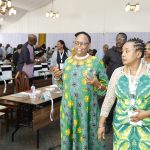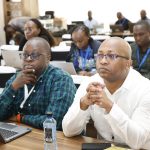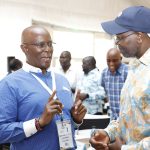“UN cites cyberbullying as a threat to judicial independence” – CJ Koome.
“UN cites cyberbullying as a threat to judicial independence” – CJ Koome
The Office of the United Nations High Commissioner for Human Rights has expressed concern over the rising wave of cyberattacks directed at the Kenyan Judiciary and the serious threats these attacks pose to judicial independence.Speaking while officially opening the 2025 Judges Colloquium themed ‘Digital Transformation, Technology and Law – Tech Justice,’ Chief Justice Martha Koome noted that despite ICT’s profound benefits in enhancing access to justice, technology has also come with its darker side, which poses a real and present threat to judicial independence.
The CJ particularly observed that social media platforms, while serving as important spaces for dialogue and information sharing, have also become arenas where the dignity of judges and judicial officers are undermined.
“Over the last one year, we have witnessed a worrying and ugly trend of increased cyberbullying, targeted harassment, and orchestrated online campaigns against judges and judicial officers,” CJ Koome said.
The CJ expressed concern that this sustained social media onslaught is not merely a passing wave of criticism but a calculated move to weaken the moral authority of the Judiciary and to intimidate judges into silence or into bending the law to the whims of some nefarious interests.“These platforms have become conduits for unfounded accusations, half-truths, and outright defamatory allegations intended to sow doubt and delegitimize judicial decisions. Such attacks are not merely directed at individual judges but are calculated to corrode public confidence in our entire system of justice.” Chief Justice Koome stated.
CJ Koome remarked that if left unchecked, the culture of digital intimidation risks creating a chilling effect where judges feel pressured to decide cases in line with political expedience or wishes of certain private and commercial interests, rather than in fidelity to the Constitution and the law.
She maintained that the independence was not only about freedom from external control, but also about the ability of a judge to carry out his or her duty without fear of reprisals, whether physical, political, or digital attacks. “Protecting that space of fearless adjudication is essential if the Judiciary is to continue playing its constitutional role as the last line of defence for justice, rights, and the rule of law,” the CJ affirmed.
The Chief Justice revealed that the cyber harassment of the Kenyan Judiciary had caught the attention of the Office of the United Nations High Commissioner for Human Rights. “Just last week I received a request from the Office of the United Nations High Commissioner for Human Rights, expressing deep concern over the rising wave of cyberattacks directed at the Kenyan Judiciary and the serious threats these attacks pose to judicial independence.”In light of these developments, the CJ announced that the Office of the United Nations High Commissioner for Human Rights is keen to facilitate a visit to Kenya by the Special Rapporteur on the Independence of Judges and Lawyers, who would undertake a fact-finding mission.“Such an external engagement by a global expert will not only help us take stock of the situation at home, but will also provide authoritative guidance on the measures we should adopt to fortify our resilience,” CJ Koome observed.
“The Special Rapporteur’s recommendations will be invaluable in shaping interventions that judiciaries and legal professions, both in Kenya and in other jurisdictions, can employ to counter this new and insidious pattern of attacks on judicial independence.” CJ Koome said.
Speaking during the same forum, Chief Registrar of the Judiciary Winfridah Mokaya underscored the role that technology is playing in placing the Kenyan Judiciary on the world map.“The Kenya Judiciary has become a model— among world nations as a driver of efficiency by harnessing technology in its processes. This is evident from the regular hosting of foreign delegations who come to benchmark with us. In the last two years alone, we have hosted 7 visiting high level international delegations on technology. Technology now underpins nearly every aspect of our operations—from case tracking to registry services, judgment writing to communication,” CRJ Mokaya highlighted.
The Director of Kenya Judiciary Academy, Dr. Smokin Wanjala, explained that on the jurisprudential facet, the Judiciary is witnessing rapid technological advances that Judges must keep abreast of, to ensure their decisions remain not only jurisprudentially sound but also technologically attuned.
“On the institutional and operational front, the Judiciary is undergoing profound technological transformations, making it imperative for Judges to understand how these developments shape and impact our work,” Dr. Wanjala reflected.
The annual Judges Colloquium brings together all the judges of superior courts and stakeholders to share experiences and discuss emerging issues.
Ends/…


















